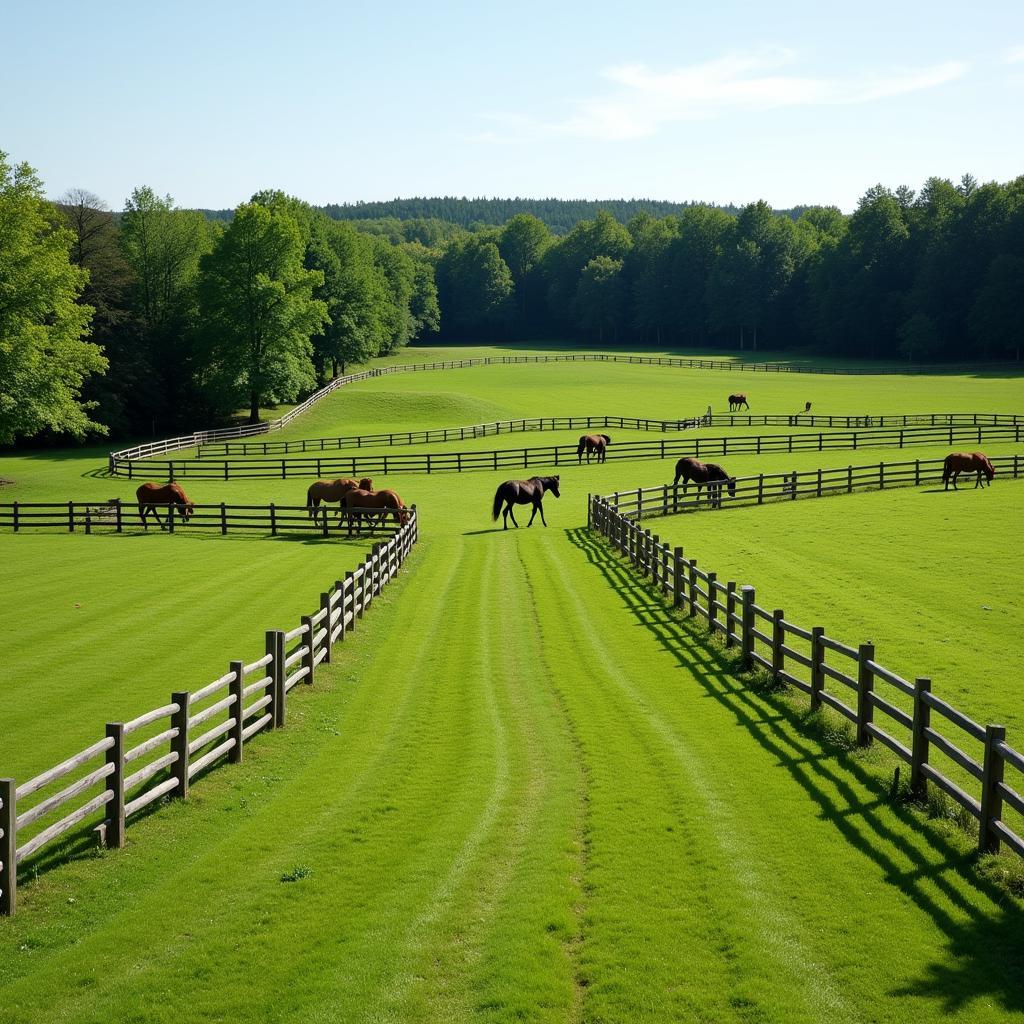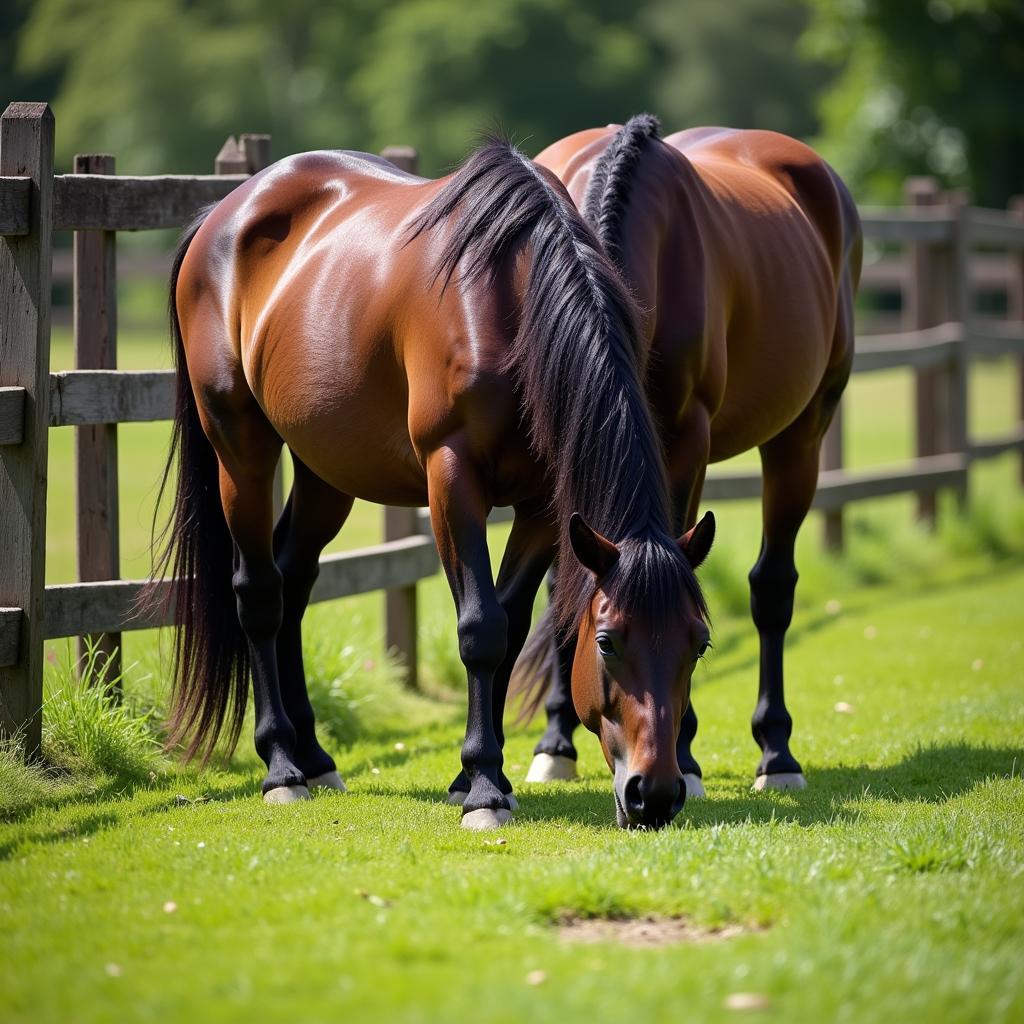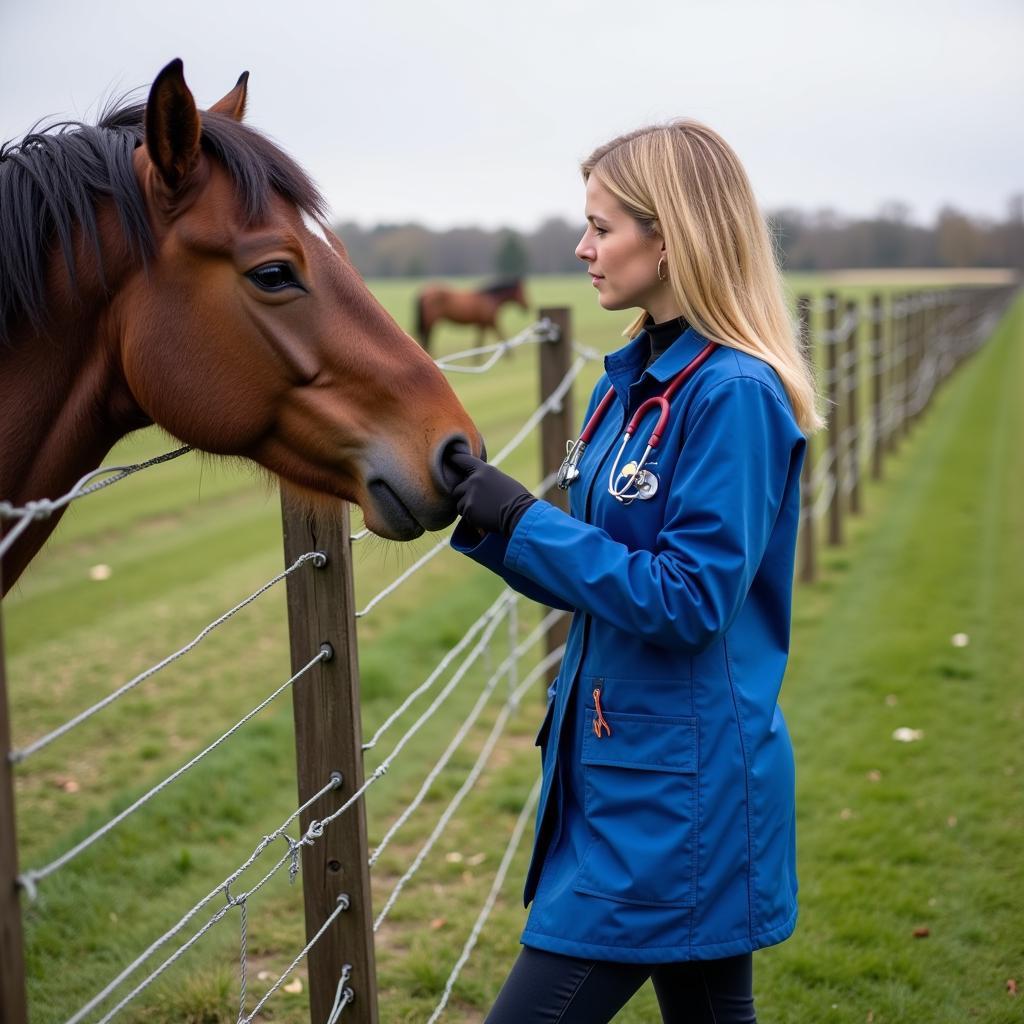Double fencing is a common sight on horse farms, and for good reason. While it might seem like overkill to some, this practice serves several important purposes that directly impact the safety and well-being of these majestic animals. Understanding the reasons behind double fencing reveals a deeper understanding of horse psychology and the precautions responsible owners take to ensure their equine companions thrive.
 Double fencing on a horse farm
Double fencing on a horse farm
Preventing Injury and Escape
One of the primary reasons for double fencing is to prevent horses from injuring themselves on the fence itself. Horses are naturally curious and prone to leaning over or scratching on fences. A single fence line, especially one with sharp edges or protruding nails, poses a significant risk of cuts, scrapes, and even more serious injuries. Double fencing creates a buffer zone, preventing horses from coming into direct contact with the outer fence and minimizing the chance of injury.
The second line of defense offered by double fencing is crucial in preventing escapes. Horses are powerful animals with a strong flight instinct. A single fence, no matter how sturdy, might not deter a determined horse from testing its boundaries, especially if it’s spooked or feeling playful. The double fence acts as a deterrent, discouraging horses from attempting to jump or push through the first fence line.
 Horses grazing safely in a double-fenced pasture
Horses grazing safely in a double-fenced pasture
Limiting Contact and Disease Transmission
Double fencing also plays a crucial role in managing interactions between horses within a property and those passing by. Horses are social animals with a strong herd mentality, and while they enjoy interacting with their pasture mates, excessive contact with unknown horses can lead to problems.
Double fencing establishes a clear boundary, preventing horses from reaching over and biting, kicking, or challenging horses on the other side. This is especially important when new horses are introduced, as it allows for gradual acclimation and minimizes the risk of aggressive behavior.
Furthermore, double fencing serves as a barrier against disease transmission. Limiting nose-to-nose contact between horses from different pastures or properties helps prevent the spread of contagious illnesses, safeguarding the health of the entire herd.
Considerations for Effective Double Fencing
Dr. Emily Carter, DVM, an equine veterinarian with over 20 years of experience, emphasizes the importance of proper double fence construction:
“When installing double fencing, the type of materials and the distance between the fences are crucial factors. The inner fence should be strong enough to contain the horse, while the outer fence should be constructed to prevent contact with the inner fence.”
She recommends using safe and durable materials like wood, vinyl, or smooth wire for both fences. The distance between the two fences should be at least 4-6 feet to discourage jumping and allow for maintenance access.
 Veterinarian examining horse fence line
Veterinarian examining horse fence line
Conclusion
Double fencing is a fundamental aspect of responsible horse ownership. It demonstrates a commitment to providing a safe and healthy environment for these magnificent animals. By understanding the reasons behind this practice, horse enthusiasts can better appreciate the thought and care that goes into creating a thriving space for horses to live and roam freely.
If you have any questions about double fencing or need assistance with your horse farm setup, don’t hesitate to contact us. Our team at Justus Horses USA is dedicated to providing expert advice and resources to horse owners nationwide. Call us at 0772127271, email us at [email protected], or visit our farm located at QGM2+WX2, Vị Trung, Vị Thuỷ, Hậu Giang, Việt Nam. We have a 24/7 customer support team ready to assist you.